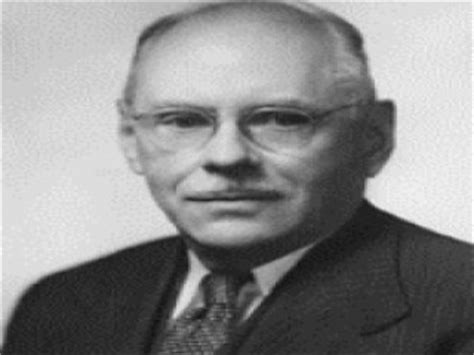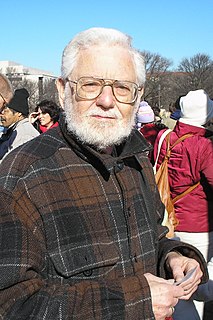A Quote by Richard Russo
Were it not for Occam's Razor, which always demands simplicity, I'd be tempted to believe that human beings are more influenced by distant causes than immediate ones. This would especially be true of overeducated people, who are capable of thinking past the immediate, of becoming obsessed by the remote. It's the old stuff, the conflicts we've never come to terms with, that sneaks up on us, half forgotten, insisting upon action.
Quote Topics
Action
Always
Be True
Becoming
Beings
Believe
Capable
Causes
Come
Conflicts
Demands
Distant
Educated People
Forgotten
Half
Human
Human Being
Human Beings
Immediate
Influenced
Insisting
More
Never
Obsessed
Occam's Razor
Old
Old Stuff
Past
People
Razor
Remote
Simplicity
Stuff
Tempted
Terms
Than
Thinking
True
Up
Us
Were
Which
Would
Related Quotes
And this shows that people want to be stupid and they do not want to know the truth. And it shows that something called Occam's razor is true. And Occam's razor is not a razor that men shave with but a Law, and it says: Entia non sunt multiplicanda praeter necessitatem. Which is Latin and it means: No more things should be presumed to exist than are absolutely necessary. Which means that a murder victim is usually killed by someone known to them and fairies are made out of paper and you can't talk to someone who is dead.
but it is also true, if this brings her any consolation, that if, before every action, we were to begin weighing up the consequences, thinking about them in earnest, first the immediate consequences, then the probably, then the possible, then the imaginable ones, we should never move beyond the point where our first thought brought us to a halt.
Many young people today do not concern themselves with style. They think that what one says should be said simply and that is all. For me, style - which does not exclude simplicity, quite the opposite - is above all a way of saying three or four things in one. There is the simple sentence, with its immediate meaning, and then at the same time, below this immediate meaning, other meanings are organized. If one is not capable of giving language this plurality of meaning, then it is not worth the trouble to write.
Artists use frauds to make human beings seem more wonderful than they really are. Dancers show us human beings who move much more gracefully than human beings really move. Films and books and plays show us people talking much more entertainingly than people really talk, make paltry human enterprises seem important. Singers and musicians show us human beings making sounds far more lovely than human beings really make. Architects give us temples in which something marvelous is obviously going on. Actually, practically nothing is going on.
what he sought was always something lying ahead, and even if it was a matter of the past it was a past that changed gradually as he advanced on his journey, because the traveller's past changes according to the route he has followed: not the immediate past, that is, to which each day that goes by adds a day, but the more remote past. Arriving at each new city, the traveller finds again a past of his that he did not know he had: the foreignness of what you no longer are or no longer possess lies in wait for you in foreign, unpossessed places.
Still I believe that Hanna Arendt, she was wrong when she tried to say that we are all actually capable of this, it's not true. I think it's not true. There are certain things human beings are not capable of. I mean people, even normal human beings. You have to do certain things in order to become what the enemy was and I didn't accept her philosophical outlook on that.
The memories which peaceful country scenes call up, are not of this world, nor of its thoughts and hopes. Their gentle influence may teach us how to weave fresh garlands for the graves of those we loved: may purify our thoughts, and bear down before it old enmity and hatred; but beneath all this, there lingers, in the least reflective mind, a vague and half-formed consciousness of having held such feelings long before, in some remote and distant time, which calls up solemn thoughts of distant times to come, and bends down pride and worldliness beneath it.
Surely, it is only when the mind is creatively empty that it is capable of finding out whether there is an ultimate reality or not. But, the mind is never creatively empty; it is always acquiring, always gathering, living on the past or in the future, or trying to be focused in the immediate present: it is never in that state of creativeness in which a new thing can take place. As the mind is a result of time, it cannot possibly understand that which is timeless, eternal.
There is fascism, leading only into the blackness which it has chosen as its symbol, into smartness and yapping out of orders, and self-righteous brutality, into social as well as international war. It means change without hope. Our immediate duty - in that tinkering which is the only useful form of action in our leaky old tub - our immediate duty is to stop it.
What our leaders and pundits never let slip is that the terrorists-whatever else they might be-might also be rational human beings ; which is to say that in their own minds they have a rational justification for their actions. Most terrorists are people deeply concerned by what they see as social, political, or religious injustice and hypocrisy, and the immediate grounds for their terrorism is often retaliation for an action of the United States.






































